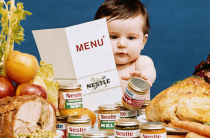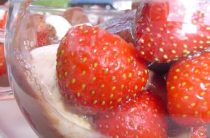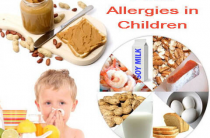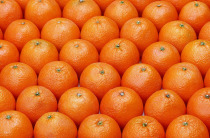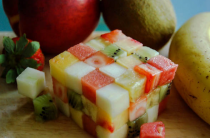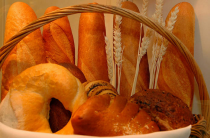A child, from the first days of his life and up to about a year, is very susceptible to various allergic diseases. Food allergies in babies become a real test for parents. A kind of hard labor can be called the period of complementary feeding of a child. It is necessary to take care of the health of the baby from the moment of pregnancy. Moms need to carefully monitor and select their diet. After all, the development of the immune system of a newborn baby depends on this.
What can cause food allergies in babies?
The human gastrointestinal tract is home to many lymphocytes, which are the main shapers of the immune system. These cells recognize toxins and allergens and neutralize them in seconds. They are also involved in food recognition and differentiation. So, in the body of a newborn child, they are contained in a very meager amount. This means that the baby does not have the necessary protection and is constantly exposed to allergic influences. The immune system has not yet been developed and reacts aggressively both to foreign proteins and to useful components.
In the intestines of the baby, the microflora has not yet been formed, and therefore, under the influence of gases and toxins, symptoms of food allergies may occur. These factors act irritatingly on the mucous membrane, which can lead to serious illnesses later in life.
Premature babies fall into the risk zone, and complications such as oxygen starvation during pregnancy, viral infections of the expectant mother, antibiotic treatment during the period of bearing the baby. Do not exclude the hereditary factor. The main "culprit" of food allergies in infants is the diet of a nursing mother. All the products she consumes end up in breast milk, which then irritates the baby's body. Also, do not introduce complementary foods too early. Doctors recommend starting no earlier than six months of age. Puree from vegetables and fruits such as pumpkin, potatoes, carrots, strawberries and pears are considered provocateurs of hives and dermatitis. Do not rush to drink juices.
Manifestations of food allergies
Food allergies manifest themselves in different ways, from all sides of the baby's body systems. Excessive urination may indicate that your baby has a medical condition. Symptoms can appear before the eyes in the form of lacrimation, swelling of the eyelids, dryness around the eyes. The presence of problems is indicated by poor sleep and increased sweating. Let's take a closer look at the most common symptoms.
From the side of the skin
Symptoms on the baby's skin appear instantly. Rarely there is some incubation period of several hours. Its types are:
|
|
|
The rash may be dry or weepy. Appears as fluid-filled pimples, dry cracks, or sores. The most common places of localization are the face, buttocks, arms and tummy of the baby. This symptomatology is often called diathesis. You may also notice dryness around the mouth. Gneiss is called a dry crust formed on the baby's head without any inflammation. The manifestations of urticaria are well known to everyone, which often has severe itching, sometimes burning, which causes great discomfort to the baby.
It is very difficult to confuse strophulus with any other type of rash. It manifests itself in the form of bubbles and nodules, resembling a simple urticaria, only at the bends of the limbs, feet and palms. Erythema is considered a complex form of manifestation of food allergies in children. The rashes increase in size and begin to coalesce into huge blisters. They are subject to frequent injury, which leads to the formation of open sores on the body.
Quincke's edema can also be called no less dangerous. The skin and body parts of the baby increase in size in a matter of minutes. And swelling of the internal organs, as well as the larynx, throat, tongue and palate can lead to asphyxia. Therefore, at the first manifestations, an immediate appeal for help to the hospital is required.
Gastrointestinal tract
From the digestive system, the disease manifests itself as follows:
|
|
The first wake-up call for the mother should be the spitting up of the baby after eating and bloating. Baby's stools may be mucus. Unexpected crying indicates colic, which forms intestinal spasms, causing pain to the baby.
From the respiratory system
Food allergy is often characterized by bouts of dry cough. They usually appear at night. There are nasal congestion and persistent runny nose, which are difficult to treat. Due to the disease, the sensitivity of the mucous membranes increases, therefore, cases of sneezing attacks are not uncommon.
Without proper attention, allergies will lead to chronic diseases: bronchitis and allergic asthma. They are actually not amenable to treatment and accompany a person throughout his life, requiring constant prevention and accuracy in everyday life and food.
Treatment of food allergies in infants
The main condition in the treatment of food allergies is the preservation or resumption of breastfeeding of the baby. Mother's milk contains immunoglobulins necessary for the formation of the intestinal microflora of the child. When used, immunity is restored. Be sure to visit an allergist or pediatrician. After the tests (blood test and skin tests), treatment will be prescribed. Allergies are often caused by fish, vegetables, fruits, meat purees. They will need to be excluded for at least six months. Drug treatment consists in the use of antihistamines. And to eliminate hives and runny nose, topical preparations are used.
Antihistamines
Antihistamines have warnings based on the child's age. Therefore, for infants with food allergies, there is a fairly small list of drugs. The following are recommended:
- Suprastin;
- Erius;
- cetirizine;
- Claritin;
- Pipolfen.
Suprastin is allowed for children from one month of age. The drug belongs to the first generation, is safe. Symptoms pass fairly quickly. If these dosages are not observed, dizziness and drowsiness may occur. Erius is available in the form of a syrup, which greatly facilitates the treatment. The drug relieves any skin manifestations and relieves allergic rhinitis. Cetirizine is fast acting, but is prescribed only by a doctor, as it has a very large number of contraindications and adverse reactions. An excellent tool can be called Claritin. It is available in the form of syrup and tablets. Eliminates manifestations of food allergies and hay fever.
Local preparations
Such drugs are used to relieve rashes, hives, runny nose. These include creams and ointments, nasal and eye drops. The delicate skin of a newborn requires special care. Therefore, hormonal ointments are contraindicated for the removal of skin manifestations. It is better to use such non-hormonal agents:
| Desitin | It is used to relieve prickly heat and eczema in newborns. The composition includes oil, which prevents the spread of the rash on the surface of the body. |
| La Cree | It has an anti-inflammatory effect in allergic rashes. Fights itching and burning, moisturizes the baby's skin. One of the components of the cream is a string that soothes the skin. |
| Bepanthen | The ointment is used for dermatitis and skin cracks. Has no adverse reactions. It has a regenerating effect, promotes rapid healing of wounds. |
| Gistan | The most versatile ointment for all forms of skin manifestations of allergies. The composition includes calendula, which relieves itching and inflammation. |
| Panthenol | The tool is in the form of a spray and ointment. It has an antipruritic effect, which allows you to soothe the skin and promote its regeneration. |
| Skin Cap | Aerosol perfectly copes with any manifestations of dermatitis and allergic urticaria. Has an antifungal effect. |
| Wundehill | The cream is an antiseptic, disinfects wounds. It is used in acute forms of urticaria, eczema and dermatitis. Eliminates swelling and pain. |
To relieve allergic rhinitis in infants, doctors recommend using Fenistil and Zirtek drops. Fenistil has a pleasant taste, so it is well tolerated by children. Eliminates itching in the nasal cavity. The effect occurs within 15 minutes. Zirtek is not recommended for children under 1 year old, but doctors very often prescribe it to babies, just at a lower dosage. Drops quickly free the nasal cavity from sputum and make it easier for the baby to breathe. They are antihistamines.
In their composition, they contain only sea salt and water. They promote the natural healing of the nasal mucosa, moisturize it and prevent the effects of allergens on it by creating a kind of barrier. Available in the form of a spray, which allows you to follow a clear dosage. These include:
- Aqua maris;
- But-salt;
- Humer;
- Aqualor and others.
diet for mom
Often, food allergies in infants act as a pseudo-allergic reaction. All symptoms are manifested due to the consumption of certain foods by the mother. Therefore, you need to stop eating citrus fruits, strawberries, raspberries, peaches, nuts, chocolate, cocoa and coffee. If there have been cases of allergies in your family, not only food, mom should follow a more strict diet, which is characterized by the rejection of the following foods:
|
|
|
To identify the allergen product, you need to keep a food diary. Its essence lies in recording the time of eating, the amount consumed, the characteristics of the dish, allergic manifestations in the baby and the designation of a possible harmful product. This will help to independently recognize the cause of the allergy in the newborn and help the doctor prescribe the right treatment. Such a diary is kept for at least three months, without missing a single day.
To compensate for some vitamins and minerals after giving up certain foods, mothers need to include dietary meat in the diet. It can be rabbit, beef or turkey. Prepare everything for a couple or in the oven. It is allowed to eat green apples and apricots. Sometimes you can drink a glass of unflavoured yogurt. Before cooking, potatoes should be soaked in cold water for several hours. Any porridge cooked in water is allowed, except for semolina.
It is necessary to abandon seasonings and spices, as well as minimize salt intake. Make your own lean vegetable broths. If the broth is meat, drain it at least three times and then boil it. For taste, you can add parsley or dill. Try not to abuse juices. It is better to drink weakly brewed green tea.
Helpful Hints
To protect your baby from such a disease, follow some tips:
- Keep your child's bedding clean.
- For the personal hygiene of the baby, use only hypoallergenic cosmetics.
- Eat only freshly prepared meals, yesterday's food is unacceptable.
- Do not let your baby interact with animals.
- Ventilate the room regularly.
- Get rid of bad habits, do not overeat.
- Introduce complementary foods to the baby no earlier than six months of age, starting with green vegetables and fruits, then yellow, pink and red.
- Use only proven hypoallergenic milk formulas.
- Cook porridge only with goat's milk (not cow's).
